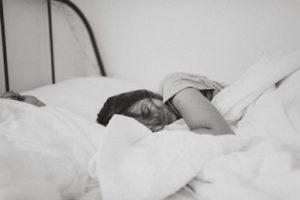A study, recently published in Journal of Glaucoma and conducted in the United States on over 6,700 patients over 40 years of age, revealed possible connections between glaucoma and sleep problems.
The study analysed data from the National Health and Nutrition Examination Survey 2005-2008. The participants in the study were glaucoma patients with obvious optic nerve damage and loss of vision in part of the visual field. The participants' optic nerve was examined by means of fundus photography and the loss of the visual field was ascertained by means of automated tests.

The patients enrolled were asked to respond to a questionnaire in which there were questions about their experience of sleep, so as to highlight:
-hours of sleep per night;
-difficulty falling asleep,
-the presence of sleep disorders (waking during sleep),
-diagnosis of disorders, such as sleep apnoea;
-the use of sleep medicines;
-the presence of drowsiness during the day.
The study revealed an association between glaucoma and sleep problems. In fact, individuals who slept for 10 or more hours a night were 3 times more likely to have glaucoma-related optic nerve damage than those who slept only 7 hours a night. In addition, subjects who fell asleep in 9 minutes or less, and those who took 30 minutes or more, showed the twice as likely to have glaucoma compared to subjects who took 10-29 minutes to fall asleep. Furthermore, the odds of having vision loss were three times higher among individuals who slept three hours or less, or 10 or more per night, compared to those who slept seven hours a night. The subjects who claimed to have difficulty remembering something due to daytime sleepiness were twice as likely to have visual field loss compared to those who stated that they did not experience daytime sleepiness and did not notice any memory problems.
The study data reveal, therefore, the presence of a clear association between glaucoma and abnormal sleep duration, sleep latency and diurnal dysfunction; demonstrating that these parameters can represent a risk factor or a consequence of glaucoma.
Source:
Association Between Sleep Parameters and Glaucoma in the United States Population: National Health and Nutrition Examination Survey. Mary Qiu et al. J Glaucoma 2019; 28:97-104.
Dr. Carmelo Chines
Direttore responsabile
